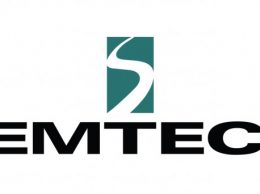Spurned bid for First California sets off battle of the banks
Westlake Village-based First California Bank has rejected an unsolicited all-stock takeover offer from Los Angeles-based PacWest Bancorp at $7.25 a share, 32 percent higher than First California’s recent trading price.
For its part, PacWest has signaled publicly that it now wants to enlist the energy of disgruntled First California shareholders to help push through a deal after making its private offer public. Such a combination would yield a $7.5 billion bank, PacWest said.
For now, it is shareholders in First California, disgruntled or otherwise, who are benefiting, with the stock trading up 18 percent to $6.63 on May 9. First California and PacWest have been two of California’s most aggressive acquirers of troubled banks since the onset of the financial crisis, and both have expanded dramatically along the Highway 101 corridor.
First California, a $2 billion-asset bank, has been under pressure from three major shareholders to sell itself or otherwise boost its share price and has hired an investment banking firm to help evaluate its options.
The company said it received an “unsolicited and highly conditional offer” to be taken over in exchange for shares in PacWest, a $5.4 billion-asset bank that bought Affinity Bank and Los Padres Bank in the Tri-Counties, both FDIC-assisted transactions.
First California said May 9 that it rejected PacWest’s offer. The company said in a release that it asked for more information about the proposed deal, but PacWest would not enter into a non-disclosure agreement or provide more details unless First California signed an exclusivity agreement that would prevent it from talking to other potential buyers.
First California CEO C.G. Kum told the Business Times his company received the offer on May 3 with a deadline to reply by May 8. He said he asked PacWest officials for more time.
“I called the CEO [Matt Wagner] and asked him for a one-week extension to process this request properly. I was summarily rejected,” Kum told the Business Times. “The phone conversation ended with him saying either you sign by the deadline or we’re going to go public. … It’s a pressure tactic.”
Kum said he couldn’t agree to the demand because making the negotiations exclusive would preclude First California from seeking a higher price from other suitors. By forcing PacWest to go public with its $7.25 offer, an asking price is now in full public view as a floor. “It’s a two-edged sword for them,” Kum said.
For his part, PacWest CEO Wagner signaled that he is not finished trying to purchase the Westlake Village firm. In a press release, he hinted that his company had pulled back the curtain on the offer’s details in hopes that First California’s shareholders, including those pressing the company’s management to take action to increase shareholder value, could evaluate it for themselves.
“We’ve made this disclosure reluctantly, and only after First California summarily rejected our proposal and ignored our previous efforts to engage with them in discussions. Given the significant premium we have offered, we wanted to make sure all [First California] constituents are aware of this attractive proposal,” Wagner said in a release. “We are excited about the prospects for a combination of PacWest and [First California] and plan to work diligently toward a transaction.”
In recent months, three investor groups – the Pohlad family of Minnesota, Castine Capital Management of Boston and Basswood Capital Management of New York – have urged First California’s leaders to take strong action to improve the outlook for shareholders, who have watched their stock trade at low prices despite the bank’s strong deposit base. Together the investors own more than 20 percent of First California.
The Pohlad family, which owns 12.1 percent of First California, wrote an open letter to the company in January, after stock prices had been mired in the $3 to $4 range. The investing family wrote that First California’s leaders “could be doing more to create stockholder value” and that the bank’s “current strategy is inadequate to maximize stockholder value.”
On Jan. 23, Castine Capital seconded the Pohlad’s position, pointing out that First California’s battered shares could hamper its ability to use stock as a bargaining chip. “Management has told us many times that its preferred strategy is to acquire other institutions at inexpensive prices,” managing member Paul D. Magidson wrote to First California. “We do not see this as a realistic possibility given the numerous competing banks in [First California’s] markets that also want to make acquisitions and have a stock currency that makes a higher purchase price more easily achievable.”
But much has changed since then. For one, First California’s share price has risen more than 60 percent, to the mid-$5 range prior to the PacWest offer and rejection.
With the gain to $6.63 after the offer was announced, the shares are trading well above the company’s book value — the value of its tangible assets minus its liabilities.
First-quarter profits at First California declined 86 percent year-over-year to $2.3 million, but the decline was entirely because of a one-time tax credit in 2011 connected to buying failed banks. The company also bought a Riverside-based bank and announced a realignment of its branches that involved closing a Thousand Oaks branch and three others.
For its part, PacWest has made a steady march into the Tri-Counties. It acquired Ventura-based Affinity Bank when that bank failed in 2009, and then Solvang-based Los Padres Bank when it failed in 2011. That gave it 12 branches in the region.
More recently, PacWest beat out Oregon-based Umpqua Holdings Corp.’s $44.7 million bid for San Luis Obispo-based American Perspective Bank by offering $58.1 million. That move came a little more than a year after First California acquired San Luis Obispo-based San Luis Trust Bank after that institution failed and was seized by regulators.
In the meantime, First California has been attending numerous investor conferences with companies such as D.A. Davidson & Co. and Sterne Agee, among others.











